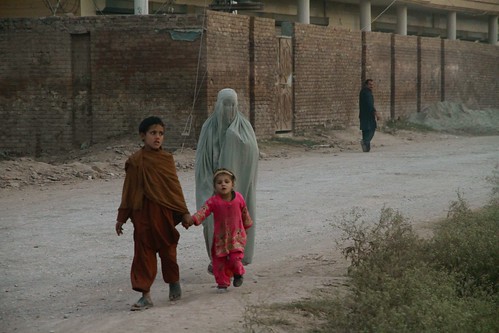Sunak forced to bring thousands of Afghans granted sanctuary in Britain to UK from Pakistan amid safety fears
Pakistan #Pakistan

Afghans eligible for sanctuary in Britain but trapped in Pakistan and Iran will be scrambled to the UK as soon as possible after diplomats warned they could not keep them safe.
In a U-turn of government policy, ministers have pledged that all Afghans eligible for the UK’s resettlement schemes will no longer have to wait for accommodation to be confirmed before coming to Britain.
The Independent first revealed in April this year that the UK had stopped chartering flights and demanded refugees find their own housing in Britain before travelling.
Rishi Sunak’s government has been forced into the u-turn after Pakistan authorities issued an ultimatum, warning that undocumented Afghans must leave the country by 1 November – or risk deportation. Mr Sunak, along with the home secretary, defence secretary and foreign secretary, was facing multiple legal challenges from Afghans stuck in Pakistan and Iran over the government’s failure to relocate them, despite them being promised safe haven in the UK.
The government had also been explicitly warned by UK diplomats that the Afghan refugees in both countries could not be protected from arrests and deportation.
Nearly 3,000 Afghans, many of whom worked for the British army, have been stranded in Islamabad for months. Hundreds are also trapped in Iran waiting for relocation to the UK.
Pakistan announced a crackdown on the 1.7 million Afghan asylum seekers in the country without legal documents, saying they have just days to leave the country. The UK government is trying to transfer eligible Afghans as quickly as possible but has not set out a strict timetable – saying negotiations are ongoing with the Pakistani authorities.
The Independent revealed that police raided one of the UK-funded hotels in Islamabad last month and arrested a number of Afghans whose visas had run out. They were only released after an intervention by the British High Commission.
US marines during the Kabul evacuation in Afghanistan in August 2021 (AP)
Referring to the Ministry of Defence and Home Office’s Afghan resettlement schemes, Lisa Giovannetti KC, on behalf of the government, told the High Court on Friday: “Ministers have agreed a change to government policy. To allow Arap cases and ACRS, those eligible under those schemes to be resettled to the UK without a prior requirement for settled accommodation.”
She said the government would continue the resettlement of Afghans on the Ministry of Defence’s scheme “into suitable accommodation as a primary option as quickly as possible”, adding: “But if transitional accommodation is required, this will be provided, including hotel accommodation if necessary.”
Those on the MoD’s scheme have been being matched with armed forces homes in the UK since the beginning of October.
Ms Giovannetti explained that the government would try to move everyone to the UK as soon as possible but that the Foreign Office was negotiating with Pakistan’s government to speed this up. There has so far been a limit on the number of Afghans who can fly on commercial flights and notice needs to be given for RAF charter flights, she told the court.
Some Afghan families also do not have the right documentation to get exit visas and so this could delay their transfer.
The policy U-turn comes after risk assessments from the British High Commission (BHC) in Islamabad, which the government tried to keep secret, were revealed after an appeal byThe Independent and the Press Association.
They show that, while BHC staff are “engaging intensively with the Pakistani authorities at senior level” to ensure that the Afghans on UK resettlement scheme are not affected by the impending crackdown, they will be unable to ensure that all of the families are protected after the 1 November deadline.
Referring to the possibilty of arrest, the document reads: “It is very difficult to judge we would be successful in every case if it were to happen frequently beyond 1 November and we were not informed, or the eligible person didn’t have the documents with them.”
They noted that it would be “a challenge” for the Pakistan government to process the number of people who need to leave. They warned: “For practical and logistical reasons a number of foreign missions are likely to find it challenging to complete relocations processes by the end of this year.” BHC staff also warned of an “increase in tensions between different communities in Pakistan” after 1 November.
Diplomats at the British embassy in Tehran told the government in a separate risk assessment that “the overall situation for Afghan refugees in Iran has taken a significant downturn since September 2023, coinciding with the Pakistani announcement on illegal migrants”.
They continued: “Anti-Afghan sentiment has increased markedly nation-wide, and the clamour to expel Afghans has brought a surge in arrests by under-cover police, and raids on houses of Afghan migrants – possible as a deterrent to curb the flow of new arrivals. Because of this, the risk of deportation for some of our cases might well have increased along with this trend”.
They noted that official sources indicated that 224,000 Afghans were deported between March and August 2023, an approximate 15 per cent increase compared with 2022.
Daniel Carey, a partner at law firm Deighton Pierce Glynn, who brought the first case against the government, said: “I am very pleased for my clients and the 1000s of others in their position that the government has lifted the block on relocations to the UK. It has taken a huge amount of pressure over many months – from the press; from organisations; and through the courts – to force this change in government policy.”